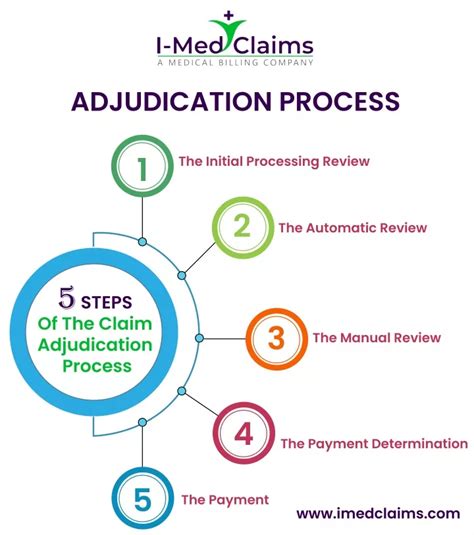The process of adjudication can be a daunting and complex one, especially for those who are new to the world of construction and building disputes. However, with the right approach and preparation, it is possible to achieve success in an adjudication application. In this article, we will outline the 5 key steps to follow in order to increase your chances of a successful adjudication application.

Step 1: Understand the Adjudication Process
Before embarking on an adjudication application, it is essential to have a thorough understanding of the adjudication process. This includes knowing the relevant laws and regulations, the role of the adjudicator, and the steps involved in the process. It is also crucial to understand the differences between adjudication and other forms of dispute resolution, such as arbitration and mediation.
Key Considerations
- Familiarize yourself with the relevant laws and regulations, such as the Construction Act and the Scheme for Construction Contracts.
- Understand the role of the adjudicator and their powers.
- Know the steps involved in the adjudication process, including the referral notice, response, and decision.

Step 2: Prepare Your Case
Preparing your case is a critical step in the adjudication application process. This involves gathering all relevant evidence and documentation, including contracts, emails, and witness statements. It is also essential to identify the key issues in dispute and to develop a clear and concise argument.
Key Considerations
- Gather all relevant evidence and documentation.
- Identify the key issues in dispute.
- Develop a clear and concise argument.
- Prepare a detailed and well-structured referral notice.

Step 3: Appoint an Adjudicator
The appointment of an adjudicator is a critical step in the adjudication process. It is essential to choose an adjudicator who is impartial, independent, and has the necessary expertise and experience. The adjudicator will make a decision on the dispute, so it is crucial to choose someone who is fair and unbiased.
Key Considerations
- Choose an adjudicator who is impartial, independent, and has the necessary expertise and experience.
- Ensure the adjudicator is available and willing to accept the appointment.
- Consider the costs and fees associated with the adjudicator's appointment.

Step 4: Submit Your Referral Notice
The referral notice is a critical document in the adjudication process. It sets out the details of the dispute, the parties involved, and the relief sought. It is essential to submit a well-structured and detailed referral notice to ensure that the adjudicator has all the necessary information to make a decision.
Key Considerations
- Ensure the referral notice is well-structured and detailed.
- Include all relevant information, including the dispute, parties, and relief sought.
- Submit the referral notice within the required timeframe.

Step 5: Respond to the Adjudicator's Decision
The adjudicator's decision is a critical step in the adjudication process. It is essential to respond to the decision in a timely and professional manner. This may involve accepting the decision, appealing the decision, or seeking further clarification.
Key Considerations
- Respond to the adjudicator's decision in a timely and professional manner.
- Consider seeking further clarification or appealing the decision if necessary.
- Ensure that all parties are aware of the decision and any subsequent actions.

By following these 5 steps, you can increase your chances of a successful adjudication application. Remember to stay focused, prepared, and professional throughout the process.





Gallery of Adjudication Application Success
What is the purpose of adjudication in construction disputes?
+Adjudication is a process for resolving construction disputes quickly and efficiently. It provides a fair and impartial decision on the dispute, which can help to avoid costly and time-consuming litigation.
What are the key steps involved in the adjudication process?
+The key steps involved in the adjudication process include preparing your case, appointing an adjudicator, submitting your referral notice, responding to the adjudicator's decision, and enforcing the decision.
How do I choose the right adjudicator for my dispute?
+When choosing an adjudicator, consider their impartiality, independence, and expertise in the relevant area of law. It is also essential to ensure that the adjudicator is available and willing to accept the appointment.
We hope this article has provided you with a comprehensive guide to the adjudication application process. If you have any further questions or concerns, please do not hesitate to contact us.
